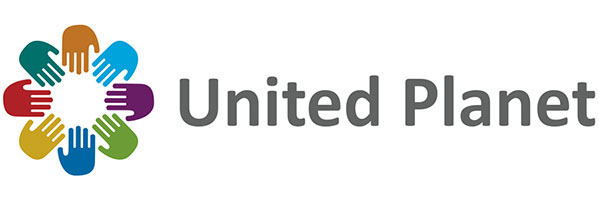
What does conservation mean in the first place? It encompasses the actions we take across various areas to conserve biodiversity and maintain the balance of ecosystems. These actions may include planting trees or implementing anti-poaching efforts. Such efforts are essential because human activities that negatively impact the environment and ecosystems, like overfishing, have dramatically increased!
In this blog, we will review how conservation efforts affect ecosystems, the challenges that may hinder conservation work, and how UP has contributed to these efforts in various ways. By the end, you’ll learn some simple tips to participate in conservation efforts!
The positive effects of conservation actions
Improving Biodiversity:
Recent studies, including a significant analysis, provide insights into the future of biodiversity. The findings clearly show that conservation efforts are effective in slowing and even reversing biodiversity loss.
These findings indicate that by applying specific conservation actions, we can make a significant difference in maintaining the diverse life on our planet.
Imagine a coral reef teeming with colorful fish, dolphins, and other aquatic animals. This beautiful underwater habitat showcases amazing biodiversity. However, pollution, overfishing, and climate change can harm coral reefs, leading to bleached coral and fewer fish.
Conservation activities such as establishing marine protected areas, reducing pollution, and promoting sustainable fishing techniques can help reverse this damage. These actions enable coral reefs to regenerate, attracting more fish and marine species. Over time, the reef’s biodiversity recovers, restoring the rich underwater world we once knew.
Enhanced Climate Change Resilience
As we mentioned earlier, conservation work is all about protecting nature, which directly impacts climate change.
Forest conservation is one effort that positively affects the environment. By preserving and protecting forests, we can help maintain or even increase the amount of carbon removed from the atmosphere and stored in trees and soil.
Reduced Soil Erosion
Soil erosion leads to the loss of productive land, degraded water quality, and disrupted ecosystems. In the long term, conservation efforts can reduce erosion and improve soil health.
One conservation action is to plant and invest in cover crops, which are plants that cover and protect the soil, especially in areas that experience heavy rainfall.
Reduced Human-Wildlife Conflict:
Since natural resources are limited, challenges and conflicts arise when animals are forced to compete with humans for resources, like food and shelter, due to the loss or fragmentation of their natural habitats.
Conservation efforts can minimize competition for resources and create safe corridors for animals, reducing conflicts with humans.
What actions can we take to help with this?
Educating the public, especially in areas where human-wildlife conflicts are common, about the importance of conservation and the need for coexistence can help change attitudes and behaviors. A misconception that contributes to this conflict is the belief that some species are not important or have no role in the environment. This is not true! Every species plays a critical role in our ecosystem, and if one goes extinct, it could disrupt the entire ecosystem.
United Planet’s Conservations Efforts
While preserving ecosystems is an essential part of creating a better world, United Planet offers several volunteer opportunities abroad to make a significant impact on environmental sustainability and conservation globally, including:
- Conservation Quests: You can volunteer and participate in conservation efforts in different countries around the world.
- Animals/Wildlife Quests: Volunteers work to preserve natural habitats for future generations.
- Environmental Education Quests: Educating people about their environment, the connections between ecosystems, and how our actions impact the environment helps raise awareness and encourage mindful behavior.
In addition to United Planet’s volunteer abroad programs, we embrace the idea of working remotely! We also offer virtual volunteering and internship programs as a way to reduce our carbon footprint.
In addition to United Planet volunteer abroad programs, we adopt the idea of working remotely! This also goes for volunteers; we provide virtual volunteering and internship programs as part of reducing our carbon footprint.
6 Conservation Tips for Your Daily Life
- Meatless Day: Dedicate one or two days each week to vegetarian food. Plant-based proteins, such as lentils and beans, are both delicious and environmentally sustainable.
- Support the Library or Bookstore: Borrow books rather than purchasing them new.
- Learn Basic Repair Skills for clothes, appliances, or furniture. Extending the lifespan of your belongings reduces waste.
- Digital Decluttering: Unsubscribe from unnecessary emails and delete unused apps. Data storage requires energy, so minimize your digital footprint!
- Invest in Reusables: Use reusable coffee mugs, water bottles, and shopping bags to minimize single-use plastics.
- Volunteer: Make a bigger impact on the environment while traveling abroad!
Conservation efforts are critical for protecting the incredible biodiversity and ecological balance of our planet. As this blog has highlighted, conservation actions can have positive impacts on ecosystems in various ways.
By establishing protected areas, reducing pollution, and promoting sustainable practices, conservation work helps to improve and restore biodiversity. When conservation is effective, it can even reverse biodiversity loss and help ecosystems recover.
The conservation work undertaken by organizations like United Planet demonstrates the power of direct action to protect the environment. Through volunteering opportunities, people can engage in hands-on projects that have a tangible impact, from habitat restoration to environmental education. By embracing remote volunteering, United Planet is also finding innovative ways to reduce the carbon footprint of its programs.
Ultimately, the positive effects of conservation are clear. By continuing to invest in these crucial efforts, we can safeguard the health and resilience of ecosystems worldwide, ensuring a brighter future for all the diverse life forms that call our planet home. Through simple daily actions, each of us can contribute to this vital mission of conservation.
Explore our environmental sustainability volunteering programs and take action now!
ABOUT UNITED PLANET
United Planet is a non-profit organization with a mission to create a global community, one relationship at a time. Established in 2001, United Planet offers volunteer abroad, virtual internships, internships abroad, gap year volunteering, and global virtual exchange in more than 40 countries.




